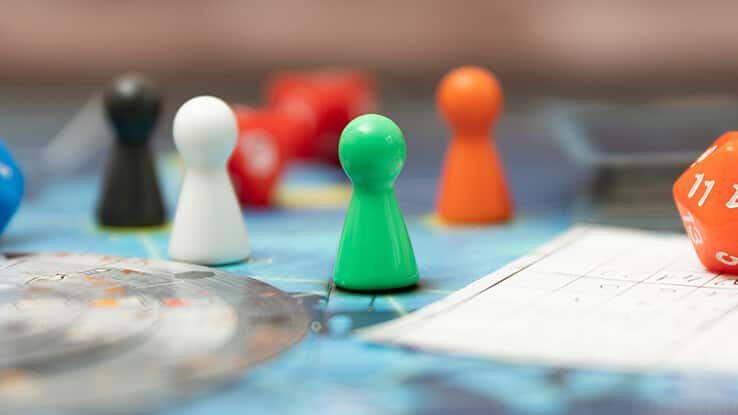
Board games are therapeutic tools for individuals with autism
What's the story
Research conducted by the University of Plymouth and Edge Hill University in the UK, has revealed a unique connection between individuals diagnosed with Autism Spectrum Disorder (ASD) and their affinity for board games. The study involved five separate analyses, aimed at understanding the popularity of board games among this group and the experiences they provide. The findings were published in two reputable journals — American Journal of Play and Journal of Autism and Developmental Disorders.
Key findings
Higher prevalence of board game enthusiasts among autistic individuals
The research found that board game enthusiasts are more prevalent among those with ASD. Out of 1,603 players surveyed, 7% were autistic — a significant figure considering that autistic people make up approximately 1% of the total population. Interviews with individuals with ASD revealed that board games help alleviate social anxiety, a condition more common in those with autism than in the general population.
Therapeutic benefits
Board games: A source of comfort and stimulation
Psychologist Gray Atherton from the University of Plymouth stated, "We know that board games are a safe and valuable hobby to many people with autism." The research involved games like Codenames, Dixit, One Night Ultimate Werewolf, and Spyfall. The rules and structure of these games were found to be "both stimulating and comforting" for players with an autism diagnosis. This suggests that autistic people immerse themselves in interests that offer a sense of achievement and predictability.
Social impact
Enhanced independence and social skills
The researchers noted that board games could be both a challenge and strength for autistic individuals. They observed benefits such as fostering independence and confidence among players, as well as aiding in the development of social relationships — a task often difficult for those with ASD. "Board games may represent an area of both challenge and strength for autistic individuals," the authors wrote in one published paper.
Ongoing studies
Future research to explore board games' role in autism therapy
The research team plans to further explore how board games can enhance wellbeing for those with autism. "We're also using our research to support adapting existing games for people with autism to make their gameplay even more accessible and enjoyable," said first author, psychologist Liam Cross from the University of Plymouth. This ongoing study underscores the potential therapeutic role of board games in supporting individuals diagnosed with ASD.